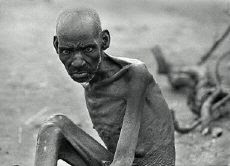Malawi: Ethanol-Driven Vehicle Under Test
A Malawi project investigating ethanol-based fuels is conducting road tests on an ethanol-propelled vehicle.
Supporters of the project argue that a switch to ethanol fuel would not only benefit the environment but also increase employment in the country's sugarcane industry and save on foreign exchange spent on fuel imports.
According to Freeman Kalirani, a lead researcher on the project -- based at Lilongwe Technical College and conducted jointly with the department of science and technology -- a modified Mitsubishi Pajero will be tested over a 350 kilometre route from Lilongwe to Mzuzu.
The five-year, US$1 million project, backed by the Malawi government, is investigating the practicability of flex-fuel vehicles that use either 100 per cent locally manufactured ethanol, or a combination of ethanol and petrol.
Until February 2006, all cars in Malawi used leaded petrol blended with 20 per cent ethanol. Since then, the country has switched to unleaded petrol blended with 10 per cent ethanol. Proponents of ethanol use argue that continued over-dependence on fossil fuels has economic, social, climate and biodiversity impacts for humans and the entire ecosystem.
Kendron Chisale, Malawi's deputy director of science and technology, said a switch to ethanol would allow Malawi to comply with procedures aimed at emission reduction, as agreed by parties at the 2006 United Nations Climate Change Conference in Nairobi in November. "This will eventually mitigate climate change related disasters," he says.
Charles Mtonga, an economic analyst, told SciDev.Net that one advantage of using ethanol as a renewable energy source is that it can increase employment in the sugarcane industry. "It can also save on foreign exchange lost through importation of petroleum products," he saidBut Mtonga cautioned against over-enthusiasm, calling for continued research on how vehicles previously propelled by petrol can best be modified to use ethanol.
He also warned that huge investments in production and installation of additional pumps would be required to make ethanol fuel available throughout the country.
Malawi produces ethanol from sugar molasses in bulk amounts at Dwangwa, in the central region lakeshore district of Nkhota-kota.



 The first and second presidents of Malawi had their own way of dealing with crises. Now the third president, Bingu wa Mutharika, seems to be different—altogether.
The first and second presidents of Malawi had their own way of dealing with crises. Now the third president, Bingu wa Mutharika, seems to be different—altogether.








